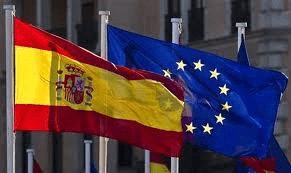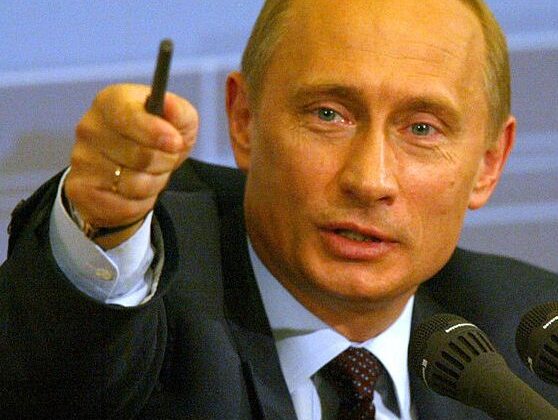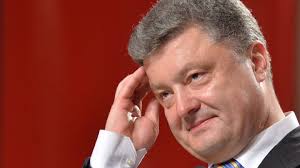A few days ago, I had the chance to observe the vicissitudes of Russian foreign policy communication in action. The same day the EU Association Agreement was signed with Ukraine, Georgia, and Moldova on June 27th, a conference was held at the European Parliament office in Madrid titled, "After Crimea: What Now for the EU." This long-awaited event, organized by the Barcelona CIDOB think tank, certainly didn't make the day any happier for representatives of the Russian Embassy. Besides, the Spanish diplomat who opened the conference reminded us that according to the European Parliament's position, Russia violated international law in Crimea and the EU supports the territorial integrity of Ukraine. A presentation by an independent scholar from Almaty added another pinch of salt: he said that events in Ukraine have polarized debates in Kazakhstan and increased fears about Russian expansionism and interventionism.
A Russian diplomat there reciprocated by providing the major messages from the Kremlin’s propaganda campaign:
- First, he insisted that the EuroMaidan provoked a coup-d’état – a weak argument that is inconsistent with both facts (former President Viktor Yanukovych fled the country) and the very idea of democracy (that presupposes people's right to revolt against tyranny).
- Second, he tried to convince the audience that "people in Crimea were afraid to lose their lives because of the regime change." In a milder version, he added that they were also afraid to be treated disrespectfully. Respect – an elusive psychological category easily susceptible to manipulations – in this logic was elevated to the level of national security issue.
- Third, the Russian diplomat confusingly claimed that Crimea opted for independence. For the well-versed participants, there was no need to waste time disproving this point since Crimea’s act of immediately joining Russia invalidated this alleged independence.
Interestingly, the Russian diplomat concluded his speech by saying that the referendum in Crimea can be considered "either legal or illegal” depending on how one sees it. In other words, he didn't dare to assure us that the annexation was completely in line with international law. Thus, the takeaway message was quite clear: we in Moscow don't care too much about legality; what matters is a fait accompli.
I scrolled through the website of the Russian Embassy in Spain and found other illuminating elements of Russia's post-Crimea discourse. In spite of the anti-European invectives coming from Russian ministries, Russian diplomats keep reiterating that "Russia is a democratic Europe-oriented country." Yet democracy is perceived in Moscow as majority rule, lacking any aspect of the protection of minorities, and belongingness to Europe is based only on history and geography, not on shared norms.
What is more, for normalizing its policy toward Ukraine, Russia resorts to multiple parallels that, in Moscow's view, are meant to disprove the anomaly of annexing Crimea. One of the habitual reference points is Kosovo – as made by the Russian Ambassador to Spain, who claims: if that was a special case, so is Crimea. Yet this argument hardly works in Spain, which actually didn't recognize Kosovo's independence – leading anyone to ask, why then should it recognize the secession of Crimea? And if Moscow insists that the recognition of Kosovo was a mistake, why then does Russia extrapolate this erroneous experience to Crimea?
Another parallel that Russian diplomats tried to draw in order to substantiate Russia's policy in Crimea is Catalonia's drive for independence from Spain. Arguably, for political reasons this argument will hardly work in Madrid. Yet it also sounds dubious in the Catalan context: my colleagues from Barcelona likened Catalonia to Ukraine, which opposes the neo-imperial policy of Russia, rather than to Crimea.
These examples demonstrate that Moscow's political narrative, which has been working well on Russia's domestic front, faces great skepticism in Europe. This also applies to the Kremlin's argument that "all the world is moving towards integration." Formally speaking, this is true, yet Moscow's policies toward countries balancing between Russia and the EU have little in common with EU strategies of normative expansion. It is hardly imaginable that the EU would blackmail its neighbor by using security vulnerabilities (Armenia) or inspire insurgency against central authorities (Ukraine). Even with countries that in November 2013 refused to sign Association Agreements (Azerbaijan), the EU keeps working on many policy tracks.
Some of the statements that I have found on the website of the Russian Embassy in Spain border on the ridiculous:
- The Russian Ambassador denies the very existance of a conflict between Moscow and Kyiv and claims that Russia has never pressured Ukraine or interfered in its domestic politics. His remark about Russia's eagerness to pacify the situation in eastern Ukraine as soon as possible looks completely declaratory.
- Not less debatable, to say the least, is the following by the Ambassador: "Crimea is a sacred land for Russia where many heroes of the Russian empire lost their lives." What is notable here is not only the direct justification of today's policies via reference to Russia’s imperial past, but the intentional confusion of diplomatic and religious languages, which is hardly normal for a laic state. Besides, who and when sanctified Crimea remains enigmatic.
- The same goes for the Ambassador's declaration about the "unconstitutional" nature of Nikita Khruschov's decision to transfer Crimea to Ukrainian jurisdiction in 1954. I don’t recall that the Russian Constitutional Court ever made any motion on this.
In the official Russian discourse, legal arguments are substituted by biopolitical reasonings: "Crimea is returning to its family," the Ambassador claims. This family-style comparison allows him to go even further and suggest that the very act of reunification is beyond material calculus.
Russia’s diplomatic messaging conclusion is enchanting and could be compacted as: "Russia is not afraid of someone or something." Yet Europeans are. This is why many of them repeat as a mantra the "need for Russia to ensure stability in Europe." Others deem that "there is a positive dynamic in the Kremlin's position." Even those who favor sanctions against Russia assume that they "are not punitive but corrective."
European diplomats, as the event in Madrid demonstrated, aim to be flexible and constructive. For example, some of them agree that the federalization of Ukraine should be kept on the agenda, but not because of Russian pressure. In its stead, the Venice Commission of the Council of Europe can be a good source of normative standards for reforming the whole system of governance in Ukraine, including relations between the center and regions.
Overall, many Russian experts are reluctant to completely associate themselves with the Kremlin and look for narrative niches that would allow them to keep communicating with their European partners. Yet, frankly speaking, their room for maneuver is not wide. They reiterate that "communication has no alternatives" and that “interdependence makes sanctions ineffective.” They try to convince Europeans that in Crimea "you have to deal with reality, and there will be no return to the status-quo-ante." In a very traditional way, they claim that "it would be a mistake to isolate pro-European segments of Russian society." They treat the EU as a politically split entity and advise Brussels to consider the Eurasian Economic Commission as its "real partner."
This type of discourse might find some audience in Spain, especially among those groups for whom the Cold War was not a story of dangerous animosity between two competing poles but as something that Spain was involved in mainly vis-à-vis the United States. Spain has its own faction of "Russia sympathizers," as well as those propagating a policy of "equidistance" from both Russia and the EU: in their view, Brussels politicized the integration of Ukraine to which Moscow overreacted.
Yet, according to a poll by the Elcano Institute, Putin's image in Spain has dropped recently – to the level of Fidel and Raul Castro. The main reason is not Ukraine. Spaniards are critical of the Kremlin's domestic policies, which are widely considered as swathed in non-pluralism and homophobia. This is expectable: Spain is one of the most secular countries in Europe, with legalized same-sex marriages and exemplary tolerances to multiple cultural lifestyles.
Perhaps all this can explain the inefficiency of Russia's communicative strategy in the EU, as seen through important countries like Spain – a state viewed in Moscow as rather loyal and even friendly.
At the end of the event in Madrid, the Russian diplomats remained isolated. I did not see a single representative from any of the European governments chat with them afterwards.











